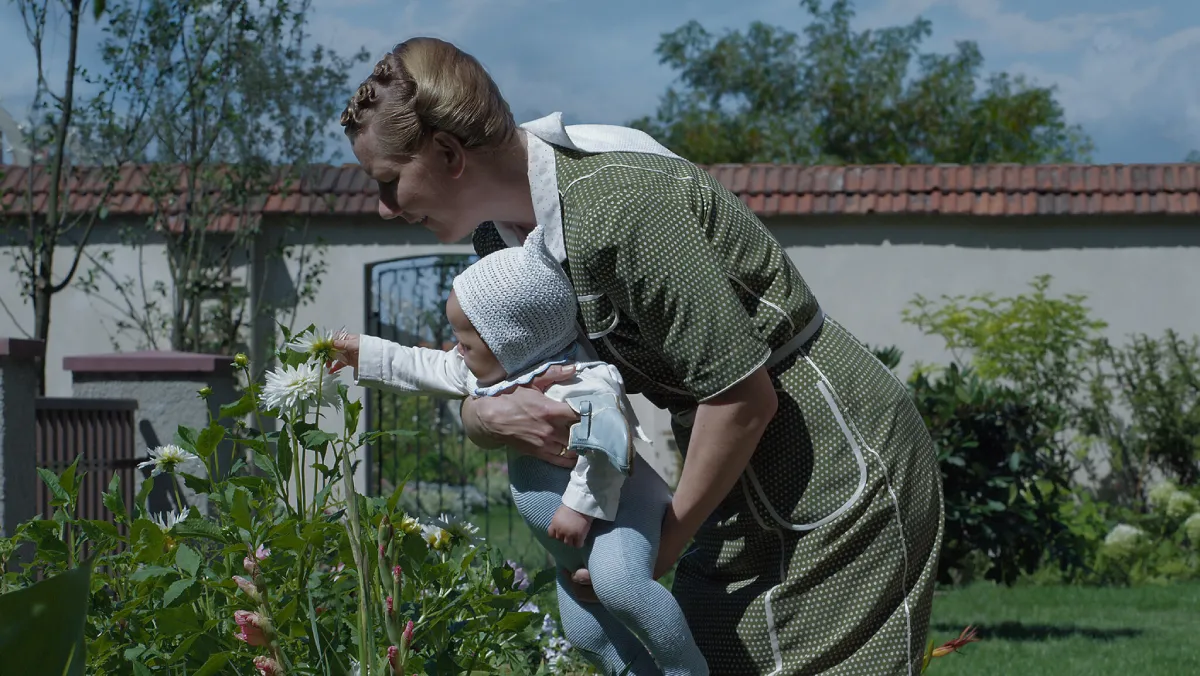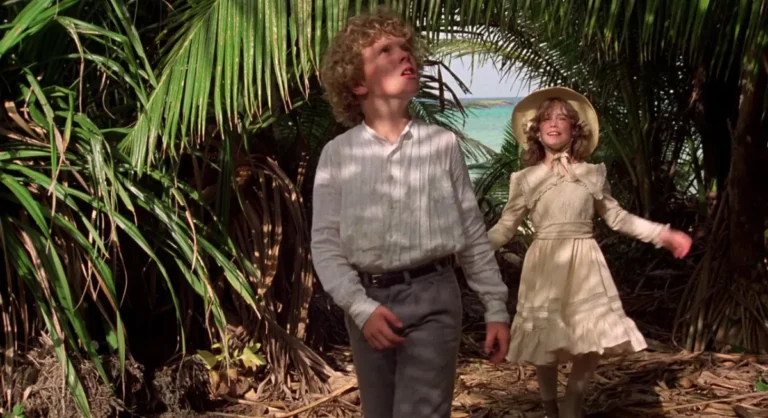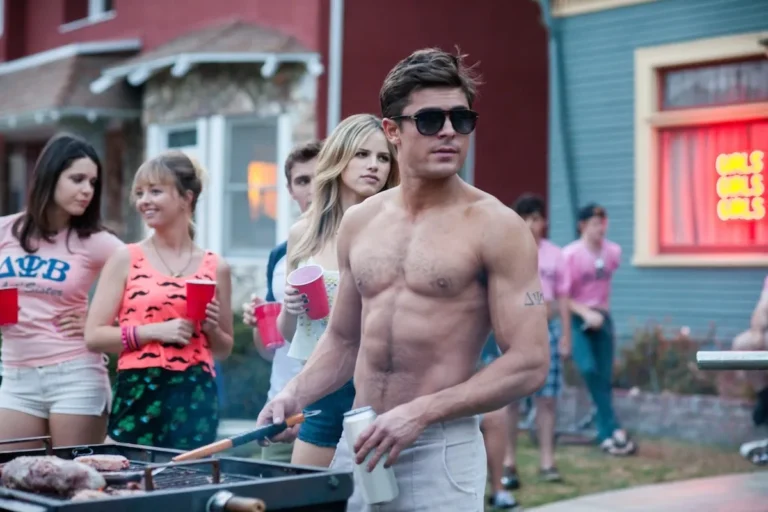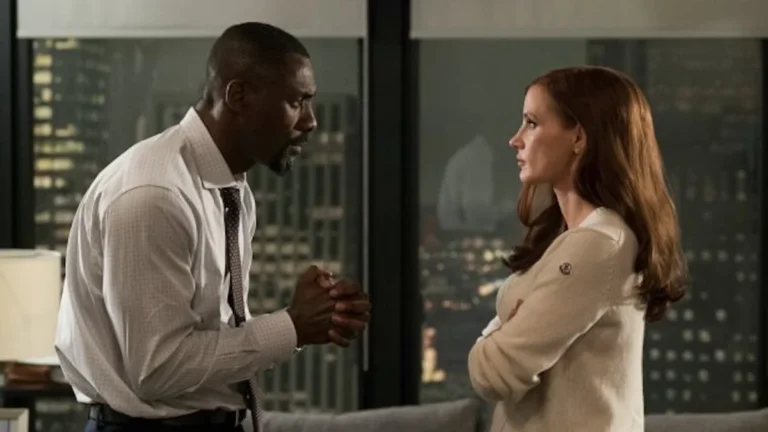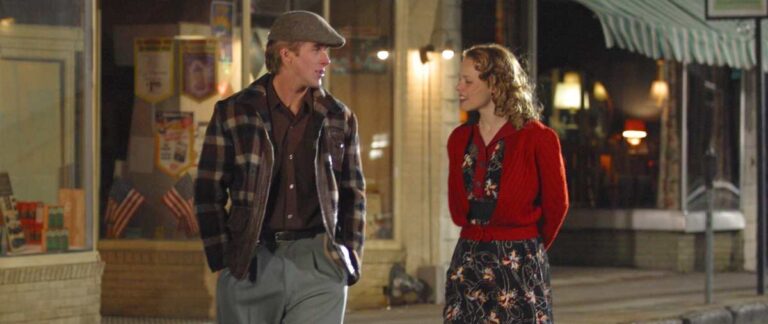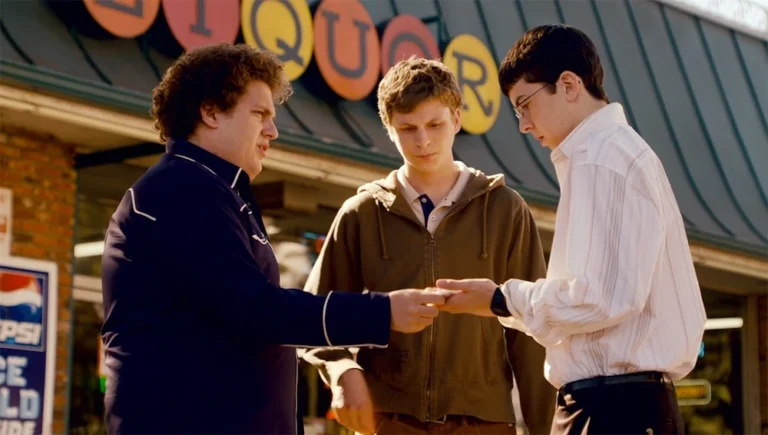7 Movies Like The Zone of Interest: Haunting Stories of Moral Conflict
Jonathan Glazer’s The Zone of Interest (2023) shook audiences with its unflinching portrayal of a Nazi officer’s family living next to Auschwitz, oblivious to or complicit in the horrors nearby. If its themes of moral numbness and institutional evil gripped you, here’s a curated list of 7 movies like The Zone of Interest. Each film delves into the darkness of human complacency, historical guilt, or the quiet acceptance of atrocity.
1. Son of Saul (2015)
Director: László Nemes | Starring: Géza Röhrig, Levente Molnár
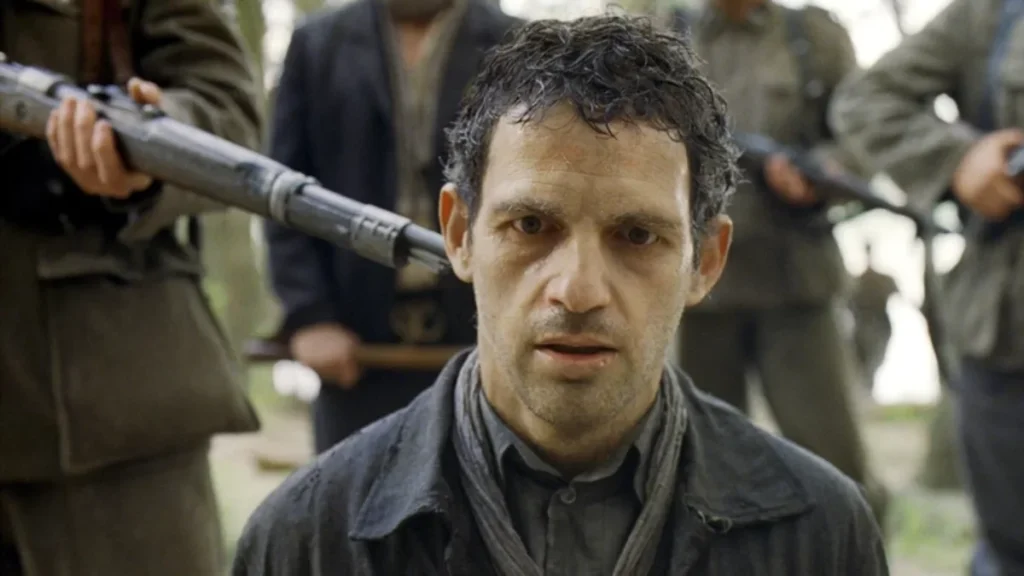
Saul Ausländer, a Jewish Sonderkommando prisoner in Auschwitz, risks his life to bury a boy he believes is his son. The film’s claustrophobic camerawork traps viewers in the daily brutality of the camp, where survival demands moral compromise.
Why It’s Similar: Like The Zone of Interest, it confronts the dehumanizing machinery of genocide. Both films avoid graphic violence, instead focusing on the psychological toll of complicity.
2. The Pianist (2002)
Director: Roman Polanski | Starring: Adrien Brody, Thomas Kretschmann
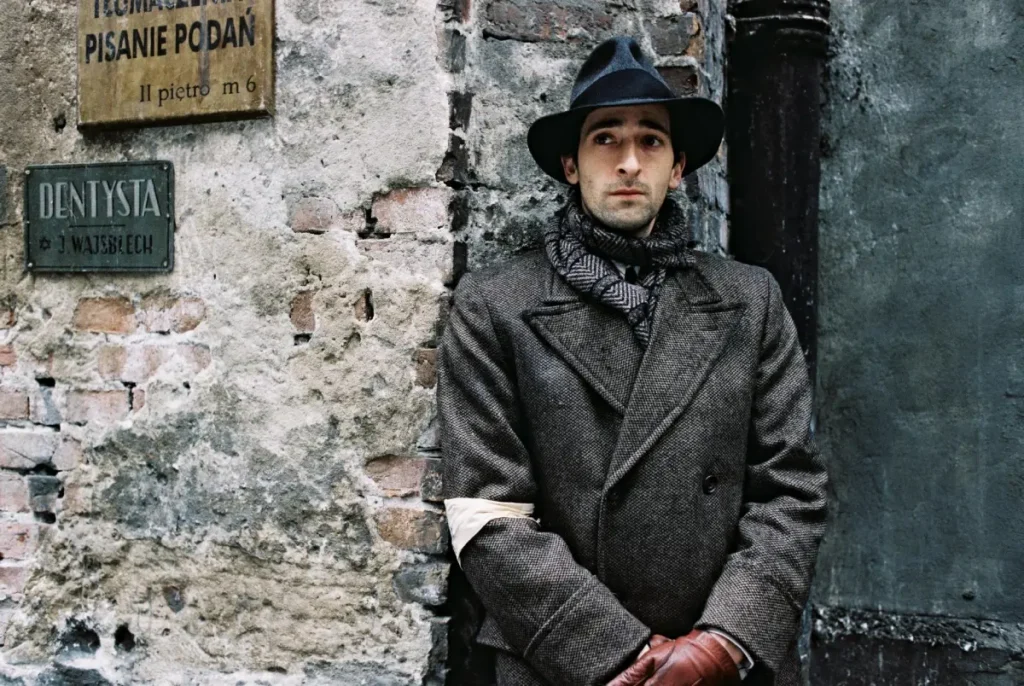
Based on a true story, Jewish pianist Władysław Szpilman survives the Warsaw Ghetto by hiding in ruins, relying on fleeting acts of kindness from strangers, and a Nazi officer who spares him.
Why It’s Similar: It juxtaposes individual humanity against systemic cruelty, much like Glazer’s film. Both explore how ordinary people navigate (or ignore) monstrous realities.
3. Downfall (2004)
Director: Oliver Hirschbiegel | Starring: Bruno Ganz, Alexandra Maria Lara
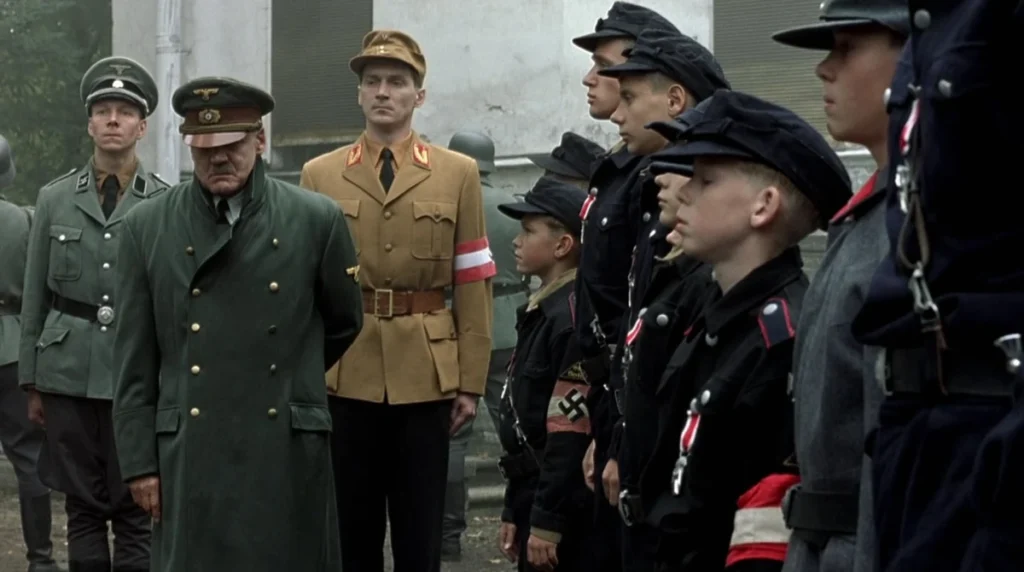
This German-language drama chronicles Hitler’s final days in his bunker, as his inner circle grapples with denial, fanaticism, and cowardice during the fall of Berlin.
Why It’s Similar: It dissects the banality of evil within Nazi leadership, mirroring The Zone of Interest’s focus on perpetrators’ detachment from their crimes.
4. Ida (2013)
Director: Paweł Pawlikowski | Starring: Agata Trzebuchowska, Agata Kulesza
A novice nun in 1960s Poland learns her family was Jewish and murdered during the Holocaust. Her journey uncovers buried secrets and the lingering guilt of those who survived.
Why It’s Similar: Themes of silence, guilt, and complicity echo The Zone of Interest. Both films use stark visuals to frame unresolved historical trauma.
5. Sophie’s Choice (1982)
Director: Alan J. Pakula | Starring: Meryl Streep, Kevin Kline
Holocaust survivor Sophie recounts her life in Auschwitz, including the unimaginable “choice” she was forced to make. The film unpacks survivor’s guilt and the lifelong scars of trauma.
Why It’s Similar: It examines how ordinary people are broken by systems of evil, paralleling the emotional numbness in Glazer’s film.
6. Jojo Rabbit (2019)
Director: Taika Waititi | Starring: Roman Griffin Davis, Scarlett Johansson
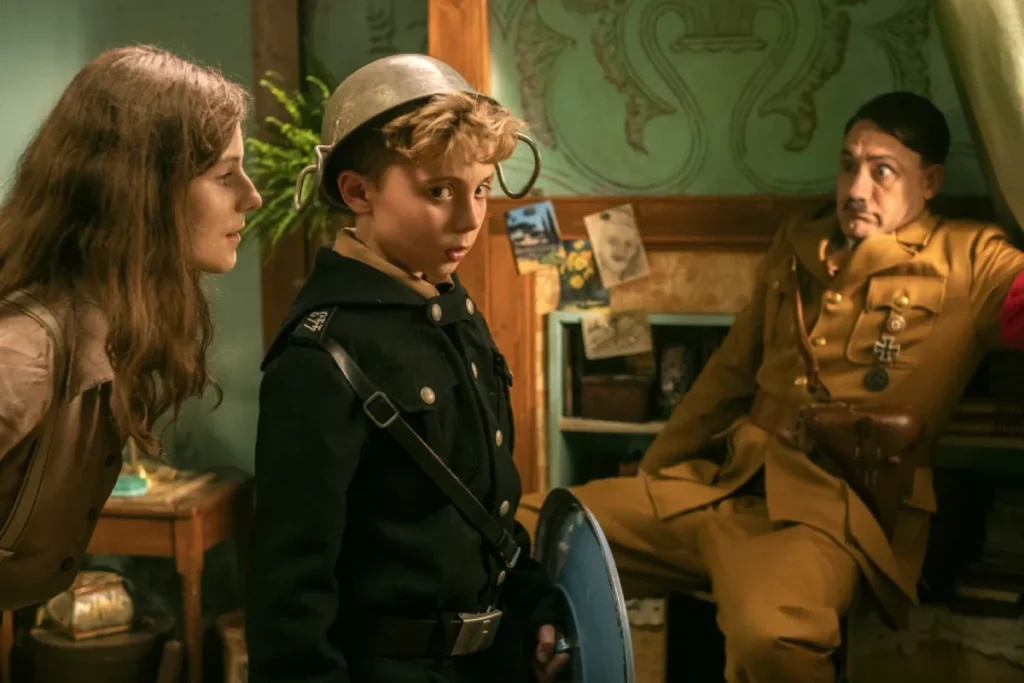
A brainwashed Nazi youth discovers his mother is hiding a Jewish girl, forcing him to confront his indoctrination. The film balances satire with tragedy.
Why It’s Similar: Both films critique how ideology corrupts innocence. Jojo Rabbit’s dark humor contrasts with Zone’s austerity, but both reveal the absurdity of hatred.
7. The Painted Bird (2019)
Director: Václav Marhoul
Adapted from the controversial novel of the same name by Jerzy Kosiński, “The Painted Bird” is a harrowing and visually striking exploration of the depravity of human nature. Set in the midst of the Nazi occupation of Eastern Europe, the film follows the journey of a young boy who is forced to navigate a world filled with cruelty, violence, and moral ambiguity. Through its stark, black-and-white cinematography and its uncompromising depiction of the horrors of war, the film serves as a powerful and unsettling commentary on the human capacity for both evil and resilience.
These films, each in their own unique way, explore the themes and emotional landscapes that are central to “The Zone of Interest.” They confront the audience with the unsettling realities of human nature, the moral gray areas that arise in the face of systemic oppression, and the resilience of the human spirit in the midst of unimaginable adversity.
As you delve into these cinematic masterpieces, I encourage you to approach them with an open mind and a willingness to engage with the profound questions they raise about the human condition. These films are not mere entertainment; they are powerful tools for self-reflection, empathy, and a deeper understanding of the complexities that define the human experience.

